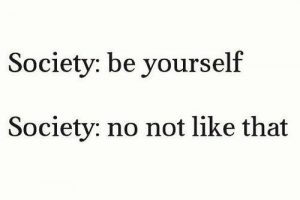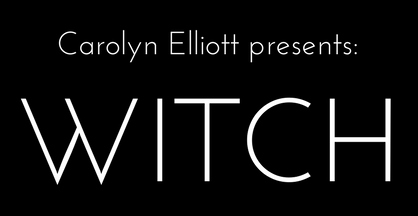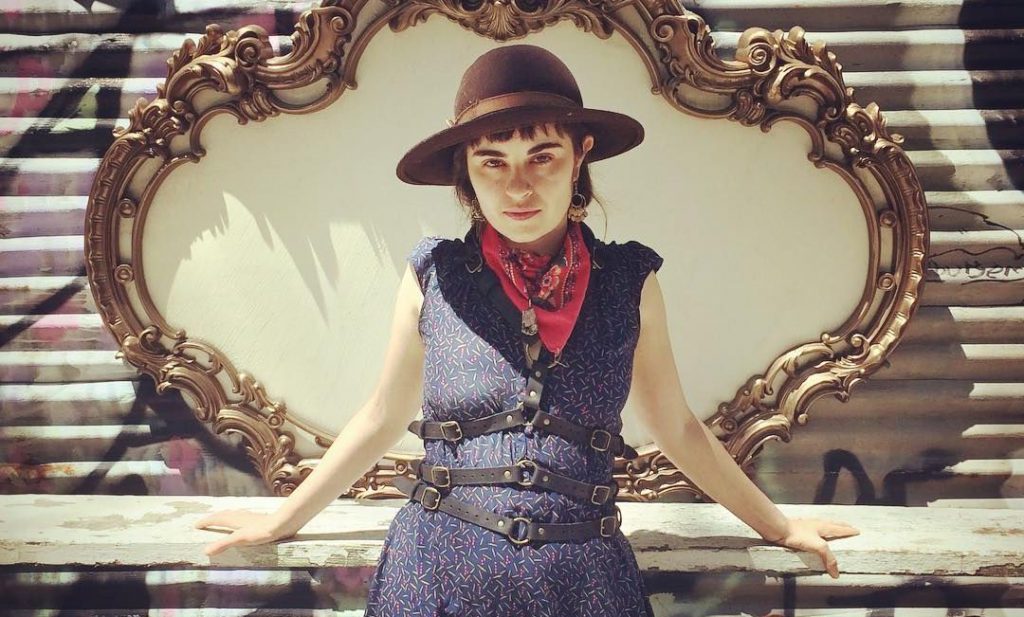by Joelle Solarsky
Since the dawn of humanity, people have been doing magic; and throughout innumerable cultures around the world, those people have been queer.
Both magic and queerness are currently on the outskirts of the mainstream and are demonized by the dominant society, but both have existed around the world in varying forms pretty much forever.
The kyriarchy has worked to erase these identities in cultures throughout the world to maintain a hold on their system of power. Using monotheistic, patriarchal religious systems, cultural erasure and genocide, any form of practice that presented a threat has been as thoroughly wiped out as possible.
But people are resilient, and oppressed people learn to be creative in finding ways to wield power, especially when it seems like the only thing in the world you can have any power over is yourself.
Openness to magic has been growing because people are seeking alternate means of power in their lives. Likewise, openness to queerness has been growing because people are seeking alternate models to the traditional cisheteronormative model they’ve been expected to conform to.
There are many well established models of gender that fall outside of the familiar binary (male/female).
These identities were erased by the same oppressive forces that are now pushing against the current wave of gender non-conforming people rising up and casting rainbows across the global social landscape.
Intuition, Creativity & Will
Simply existing as a person who lives their life outside of the expectations of society requires a striking sense of creativity and enormous strength of will.
When someone feels within themselves that their gender or sexuality don’t line up with what they see in the world, it takes a deep level of self-knowledge to acknowledge that mismatch.

It takes trust in your intuition. It takes trust that even though other people want to shame you, insult you and even kill you, that you’re living your truth.
When you listen to your inner voice and live your deep truth in one area, your intuition opens up in other areas of your life as well.
Otherness & Connection
When you’re already being persecuted for how you live your life, it might be easier to open up to other practices that are considered deviant. Sometimes, those are the only options left.
We’ve been turned away from churches and rejected at other traditional social gatherings when showing up as who we are.
Turning to magical practices can be a personally empowering means of connecting with spirituality that doesn’t require involvement in oftentimes closed-minded institutions.
Although more mainstream religions are opening their doors to queers, there’s still a lot of prejudice and hate directed towards the community.
So, unless you were lucky enough to be raised by a coven of queer witches, queerness, like magic, carries a sense of otherness. They’re both taboo.
Not unlike queer people, modern witches talk about being “in the broom closet,” for fear of judgement and stigmatization from closed-minded people in their community.
I’ve always been kind of a weird person, but when I came out, I really felt just how different I was. Society also would pretty regularly tell me that the things that make me different made me weak and made me bad. I ended up feeling depressed, self-loathing, weak and isolated. Being a witch made me feel the exact opposite way. It reminded me that there was a whole community of weirdos out there like me.” —Mey Rude, quote from “How Witchcraft Is Empowering Queer and Trans Young People”
When looking for a practice that feels right, magic has a certain appeal because it brings a sense of connection to your own power, and to your own weirdness.
Instead of being at the mercy of the ultimate judgmental patriarchal figure (who some people like to think of as “God”) for your salvation, when you’re a witch you make your own way.
Speaking of judgment, even the word “Queer” is a reclaimed slur, taken back and imbued with the power of survival and resistance. Just like another word—“Witch.”
Queering Power
In a world where even the most basic freedoms are often limited (Like using a public bathroom, does it get more basic than that?), queer people turn to alternate means of gaining power.
When the traditional institutions that grant power in society fail us, what else are we supposed to do?
While we work to bring down the institutional forces of the kyriarchy that are dominated by racist, sexist, ableist, classist, transphobic, homophobic, xenophobic, colonial and capitalist ideologies; we have the option to queer the way we gain power in our lives through magical practices.
The occult offers something to queerness that comes out of oppression and moves toward empowerment.” —Brittany Billmeyer-Finn in “Queer Magic is Real“
Fear of witches is born of misogyny, born of fear of people outside of the traditional system gaining power.
Feeling this imbalance, and turning away from traditional heterosexual relationships that recapitulate the dominance of patriarchal power can be one way to live in freedom from this model.
Queerness violates cisheteronormative values, challenging the dominance of masculine power, striking directly at the heart of the patriarchy.
Is it just me, or does it seem like queer people are more likely to be into magic than straight people?
Maybe it’s already being connected to an internal sense of being different. Maybe when you’re already going against the mainstream you may as well double down on being seen as an evil freak.
Lifting the Veil
Your identity—your sense of who you are, from how you act to how you dress—is all a certain kind of performance.
All of it is a performance that involves different symbols of meaning. These meanings have been given to us through our culture, the media, the people we know, but ultimately, it’s up to us to create our own meaning.
Of all the performances in society, the one given the most emphasis from before we’re even born is gender.
We start identifying babies as girls or boys before they’re even born. There is no other aspect of a person that falls under such scrutiny before even entering into the world.
And then, from birth on, the kinds of toys that children play with, the clothes they wear and the stories we share with them shape the narratives they develop about who they can be. Kids who don’t fall into their expected roles are considered to be “weird.”
Gender is such an intrinsic part of how we think about who people are that it’s built into the structure of our language.
To get into grammar for a moment: pronouns are a way of referring to someone without using their name, like he, she and they.
The only identifying marker that the mostly widely used pronouns “he” and “she” depend on is gender.
Carolyn Elliott says “We’re never not doing magic.” Well, we’re also never not doing gender… whether we like it or not.
By recognizing that magic is something we’re doing all the time, we can consciously exert our will on how we shape the magic we do.
By recognizing gender is something that you’re also doing, you can take your power back and consciously choose how you want to exist in the world without unconsciously falling into predetermined roles.
In both magic and queerness, you consciously live the dream of who you are.
Queering as a Ritual of Power
Doing magic means creating a life that is aligned with the meaning you want to create.
There’s a sense of power that comes from the alignment of your inner world of experience and the external world of action.
June is Pride month. Around the world, the LGBTQ+ community takes this month as a special time to celebrate a sense of pride in their identity.
The over-the-top, in-your-face, glitter and leather and rainbows at Pride celebrations serve to create a sense of meaning.
Pride serves as a public ritual of power. By marching in the streets, wearing flamboyant costumes and connecting with supportive community, Pride allows for the display of deep approval of one’s identity.
In contrast to the shame and violence of mainstream society, this show of deep approval serves as a powerful form of defiance.
Some people talk about how Pride has become a corporate event. Seeing images of corporate brands can seem to cheapen the authenticity of the celebration.
But viewed another way, corporations are some of the major power-wielding entities in our capitalist society, so the fact that they want to join Pride celebrations confirms the power that these events hold today. It also affirms the need for finding truly authentic forms of expression.
Transcending the Binary, Transcending Duality
…the capacity for witchcraft to accommodate alternative expressions of gender is what makes it appealing to a new generation of witches.” —Dakota Hendrix, quote from “How Witchcraft Is Empowering Queer and Trans Young People”
While witchcraft and magic have often been viewed as ways for women to gain power in our society, cis women aren’t the only ones who face discrimination, and they don’t even get the worst of it.
People who don’t conform to the patriarchal standard face even more extreme discrimination in the forms of transphobia, homophobia, and the demonization of anyone who doesn’t conform to the gender role they were assigned at birth.
Part of what scares straight people about seeing queers embody their fabulous selves is that it challenges their values.
The way they believe people are “supposed to be” is called into question through this reflection of people who so flagrantly defy the expected norms.
When queer people fully embody who they are, they elevate the collective consciousness by demonstrating the potential for radical freedom.
Queers serve as reflections for what’s possible—which can be uncomfortable for some—but ultimately it’s liberating to recognize the broad spectrum of possibilities for being.
Ultimately, everyone wants to be free. Living outside of a limited, binary model of sex and gender demonstrates the potential for embodying transcendent freedom.
Living in this way with a sense of pride, while rejecting the shame projected by society, is freeing.
This is definitely not to say that everyone who doesn’t conform to their expected gender or sexual roles is a perfectly enlightened being who never experiences shame or confusion—but choosing to live in a way that feels true, in spite of so much external pressure not to, creates a certain internal alignment.
Challenging this notion of binary gender and sexuality extends to other realms of duality.
Holding a sense of both feminine and masculine within simultaneously can be compared to living in the mundane, personal world of washing dishes and running errands, while at the same time maintaining a sense of connection to the eternal, the infinite, the magical web of being.
And these worlds aren’t really ever separate. We try to contain them in different categories, but just like feminine and masculine energies can’t be neatly divided in any meaningful way, the activities of our lives can’t be neatly categorized as either magical or mundane.
We’re always doing both. These worlds dance together in a dynamic, ever-shifting interplay.
Language and Liberation
Moving beyond categorization takes a sensitivity to the flows within one’s self, an ability to move beyond static identification.
Queerness can never define an identity, it can only ever disturb one”. —Lee Edelman, queer theorist
When we use words, we’re always inside a duality.
By using a word to describe something, we define it, which means that we limit it. But until we collectively step up our telepathic abilities, we’re stuck using words to communicate.
As far as words go, “Queer” seems to function as a kind of anti-label. Its significance is subversive.
“Queer” is not so much a way of saying “not that,” as it is a way of saying “different from that,” forming a label that creates space within it for diversity of expression.
“Queer” isn’t only a noun or an adjective, it can also be used as a verb: a word that contains the power of action. And our sexual energy is one of the strongest sources of power that we have.
Taking up the identity of queer is a disruption of other identities.
When you disrupt your identity, you create space to change the story of your life. To engage in the work of becoming who you are, to take the steps to transforming your life so that it feels aligned with who you feel yourself to be is magic.
“Queer” means a way of doing things differently, and for many of us who have turned to magic as adults, it’s quite a queering of our previously instilled beliefs.
“Magic” is another word that denies a static sense of identification. Magic is as a disruptive act. It’s a way of consciously, intentionally changing the story of your life to match your will.
And when you change the story of your life, you change the story of the world.
About the Author:
featured image: Hellbent @gethellbent, model: @millyraccoon
Merken
Merken
Merken

